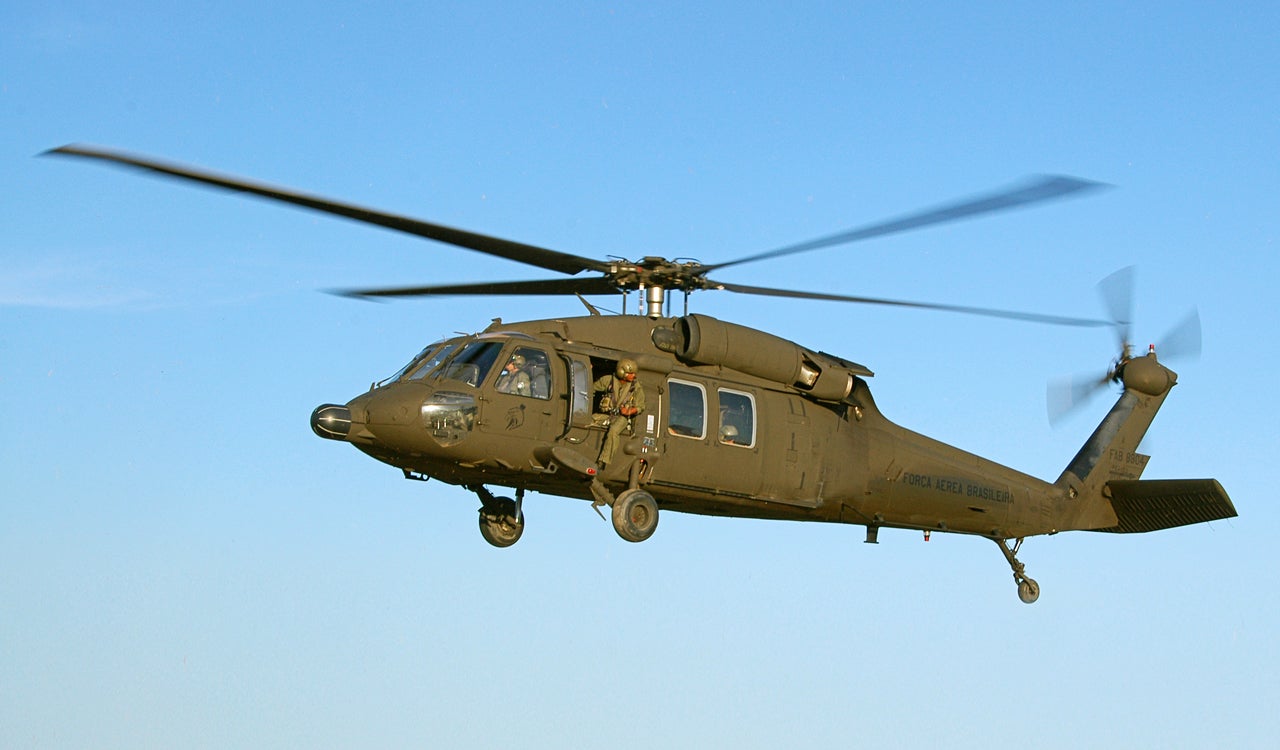UH 60 Helicopter Overview: Whatever You Required to Know
Wiki Article
The Influence of Sustainable Practices on the Future of Airplane Operations and Emissions Decrease
As the air travel sector deals with raising examination over its ecological effect, the adoption of sustainable methods emerges as an essential path towards future airplane procedures and emissions decrease. Advancements in sustainable aeronautics gas and advancements in hybrid propulsion technologies stand at the forefront of this makeover, encouraging significant reductions in greenhouse gas discharges.
Introduction of Sustainable Practices
Lasting techniques in airplane operations include a series of techniques focused on lowering environmental impact while preserving functional performance. These methods are important in the aeronautics industry's dedication to lessening its carbon impact and adhering to global environmental requirements. Secret initiatives consist of maximizing flight courses to reduce gas consumption, enhancing upkeep protocols to ensure aircraft run at peak efficiency, and carrying out advanced technologies such as winglets and lightweight materials that enhance aerodynamics.
Educating and engaging team on sustainability methods likewise play a vital role, promoting a society of environmental obligation within organizations. In general, the integration of these lasting techniques not just aids reduce emissions but likewise improves the long-lasting practicality of the aeronautics industry, guaranteeing it meets the demands of both consumers and regulative bodies while contributing to international sustainability objectives.
Innovative Fuel Alternatives
Numerous innovative fuel choices are becoming essential solutions to reduce the aviation sector's reliance on typical fossil gas. Amongst these options, Sustainable Aeronautics Gas (SAFs) have obtained substantial attention as a result of their potential to reduce lifecycle greenhouse gas exhausts by as much as 80% contrasted to conventional jet fuels. SAFs are stemmed from different feedstocks, including waste oils, agricultural residues, and even algae, making them a functional alternative for the industry.Another encouraging alternative is hydrogen gas, which, when utilized in gas cells, generates just water vapor as a by-product. This zero-emission potential presents a significant chance for decarbonizing flight operations, especially for short-haul trips and local airplane. Additionally, electrical propulsion systems are being checked out, leveraging battery technology to power airplane. While existing battery capability limitations range and payload, continuous developments may quickly make electric flights feasible for certain applications - uh 60.
Lastly, biofuels stemmed from biomass are being explored, using a renewable alternative that can be combined with standard fuels. Collectively, these innovative fuel alternatives represent a vital step towards accomplishing a sustainable aeronautics environment, straightening with international discharges reduction targets and boosting the sector's ecological stewardship.
Technical Developments in Aviation

How can technical innovations improve the future of air travel? Innovations such as electric and hybrid propulsion systems are at the forefront, promising considerable decreases in gas usage and greenhouse gas exhausts.
Furthermore, the application of innovative materials, such as lightweight compounds, adds to boosted aerodynamics and fuel performance. The use of expert system and artificial intelligence in trip operations enhances path planning and reduces fuel melt by making it possible for real-time changes based upon weather and website traffic conditions. In addition, the growth of self-governing and from another location piloted airplane systems stands to reinvent freight and passenger transportation, potentially increasing effectiveness while lessening human mistake.
In addition, lasting air travel modern technologies, consisting of sophisticated air web traffic monitoring systems, can reduce and improve procedures blockage, leading to lower emissions throughout trip. These developments jointly represent a paradigm change in air travel, assuring a future where sustainability and operational efficiency are linked, consequently sustaining the market's dedication to decreasing its environmental impact.

Governing Framework and Compliance
In light of the growing emphasis on environmental stewardship within the aeronautics sector, the governing framework controling aircraft procedures is evolving to promote lasting methods. Regulatory bodies, such as the International Civil Aeronautics Organization (ICAO) and various nationwide air travel authorities, are presenting rigorous guidelines targeted at lowering discharges and enhancing functional performance.These laws frequently include the adoption of Lasting Air travel Gas (SAF), which has actually been identified as a vital component in achieving lower carbon impacts. In addition, compliance with these laws calls for airlines to implement innovative modern technologies and functional techniques, such as maximized flight paths and boosted air website traffic monitoring, to minimize fuel usage.
Additionally, the enforcement of emissions trading schemes and carbon balancing out campaigns is ending up being significantly common, compelling airline companies to monitor and report their discharges properly. Non-compliance can result in significant charges, thus pressing operators to prioritize sustainability in their business designs.
Inevitably, the evolving governing landscape not just drives technology and investment in environment-friendly technologies yet also cultivates a culture of responsibility within the aeronautics market. As these structures remain to establish, the concentrate on sustainable methods will certainly be integral to accomplishing the sector's long-lasting environmental objectives.
Future Patterns in Airplane Procedures
As the air travel sector adapts to an increasingly rigid regulative environment, future patterns in airplane procedures are readied to concentrate on innovative services that additionally improve sustainability and effectiveness - uh 60. Trick advancements will likely consist of the you could look here adoption of advanced air web traffic monitoring systems, which utilize real-time information and expert system to optimize a knockout post trip courses, decreasing gas usage and dischargesOne more substantial pattern is the boosted combination of lasting air travel fuels (SAFs) These options to conventional jet fuel, derived from eco-friendly sources, can significantly reduce lifecycle greenhouse gas exhausts. The sector's dedication to SAFs will likely accelerate as airline companies team up with fuel manufacturers to ensure accessibility and cost-effectiveness.
In addition, the push in the direction of electrification and crossbreed propulsion systems is obtaining momentum. Emerging aircraft layouts will certainly include these modern technologies, offering quieter and much more reliable procedures, particularly for short-haul flights.
Conclusion
Finally, the combination of lasting techniques in aircraft procedures holds substantial possibility for exhausts reduction and enhanced effectiveness. The fostering of sustainable aviation fuels, coupled with developments in hybrid and electric propulsion systems, is important for minimizing lifecycle greenhouse gas emissions. Optimizing trip courses and accepting cutting-edge technologies contribute to a quieter and extra ecologically friendly aviation field. Collectively, these initiatives align with international sustainability goals and lead the means for a greener future in aviation.
Advancements in sustainable air travel gas and improvements in hybrid propulsion innovations stand at the center of this makeover, promising considerable reductions in greenhouse gas exhausts.Various ingenious gas options are arising as essential remedies to decrease the air travel market's dependence on conventional fossil gas - uh 60. Among these alternatives, Lasting Aviation Fuels (SAFs) have actually obtained significant focus due to their possible to decrease lifecycle greenhouse gas exhausts by read here up to 80% contrasted to standard jet fuels.An additional substantial fad is the enhanced integration of sustainable air travel gas (SAFs) The adoption of sustainable aviation fuels, combined with advancements in electric and hybrid propulsion systems, is essential for minimizing lifecycle greenhouse gas exhausts
Report this wiki page